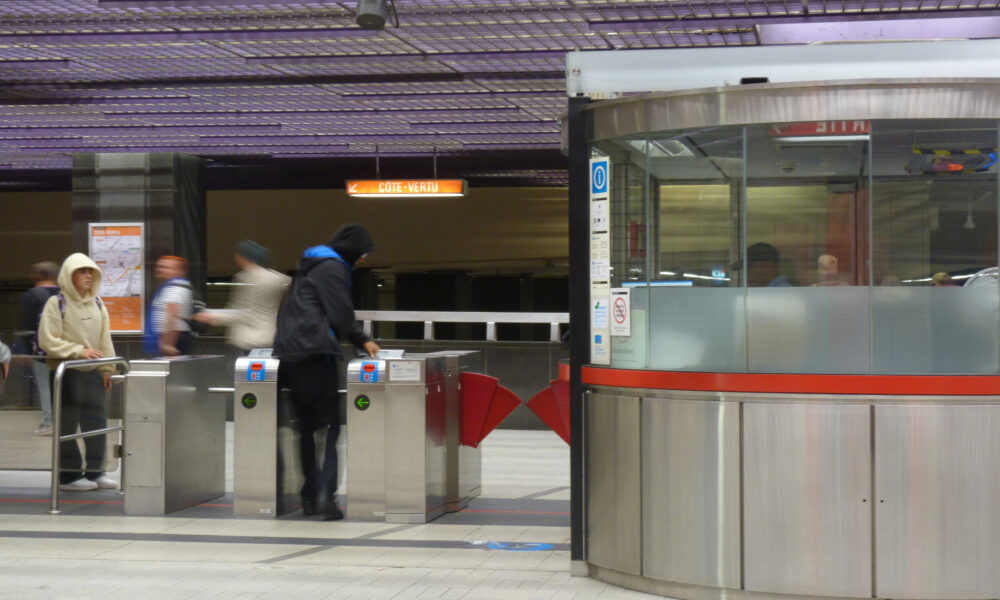At the start of October, the Société de Transport de Montréal (STM) announced that constables in charge of patrolling the Montreal Metro will now be armed with gel aerosol pepper spray. The STM made this decision in response to a growing number of incidents in the metro system in which constables intervened, often with brute force and the use of batons. The STM describes the pepper spray as a means of “de-escalating” a situation without using the same physical impact of a baton. However, the addition of gel aerosol pepper spray creates room for more frequent, unproductive hostility, and widens the gap of power between constables and Montreal’s vulnerable populations.
The number of violent incidents and reported safety complaints in the Montreal metro system have increased considerably in recent months. The Service de Police de la Ville de Montréal (SPVM) claimed 54 reported assaults in January of 2023 and 53 in February, while in 2022, the highest reported number of assaults in one month was 44. The incidence rate on the Metro as a whole has also gone up, with about 42,000 reported interventions on the STM in 2022, compared to just over 35,000 in 2021.
Though there is validity in the intention of reducing the physical harm inflicted during constable interventions in the metro, implementing pepper spray––in addition to the existing batons––attempts to mitigate the houselessness and mental health crisis by attacking people instead of addressing it at the roots. Such development allows for more frequent hostility and intensifies the gap of power, spurring resentment between the constables and the targets of their authority. It also raises questions about the logical consistency of the new policy when STM constables are granted the authority to use this pepper spray, while Canadian civilians are prohibited from arming themselves with it for self-defense, highlighting a disparity in access and usage.
The sparse ten-hour training required in order to carry the pepper spray is time that could go toward training constables in alternate strategies of de-escalation. These approaches would be much more in line with an understanding of the mental health obstacles faced by many of those involved in the interventions. While an immediate solution to crime in the metro is a large ask for the municipal government, initiating a discussion of greater awareness in the constables, who come in close direct contact with incidents of crime, is a good place to start.
The metro system in Montreal (and beyond) is one of the most immediately accessible shelters for the unhoused community, making the discussion of mental health and houselessness inseparable from the policies of the STM. Such changes must be acknowledged by policy makers as substantial alterations in the daily experiences and overall well-being of individuals who are unhoused, particularly those who are already grappling with mental health challenges. It is imperative to recognize the profound impact that these types of policy changes can have on the lives of unhoused individuals contending with mental health issues.
Such direct violence toward a vulnerable population solidifies the assumption that addiction, houselessness, and issues of mental health are the fault of the individual, justifying further harm toward them and their situation. Assaulting unhoused individuals with pepper spray as a response to their inability to find shelter is gratuitous and counterproductive; addiction, for instance, is a disease, and houselessness is the result of relentless systemic oppression, not personal failings. Pepper spray does not undo such realities.
Due to their history of abusive power and brute force, especially toward vulnerable and racialized communities, institutions such as the police department or the STM might be quick to disregard such strategies for crime mitigation. While certainly less glamorous and slightly slower-moving than the implementation of pepper spray, an emphasis on peaceful de-escalation instead of violence is progress toward systemic change that has the potential to mitigate the issue of crime as a whole. The physical harm caused by pepper spray paired with the structure of power that enforces it will not.








